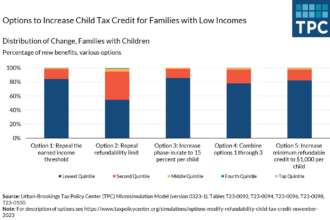Some people thrive on butting right up against deadlines. I am not one of those people.
I don’t like taking chances—especially when it comes to tax deadlines. There’s always a chance that a rush of Swifties to get concert tickets could take out the internet while I’m attempting to e-file a return. Or that a felon fleeing the scene of a bank robbery could take out the power lines just as the printer is spitting out the last tax form for signature. Or an errant zebra being chased by the police could stop traffic while I’m on my way to pop a petition in the post.
(Admittedly, I have quite the imagination when it comes to potential problems.)
I like to plan—and that includes planning for when things go wrong. Because when it comes to tax deadlines, one mistake can upend everything. Roy A. Nutt and Bonnie W. Nutt found that out the hard way.
Filing The Petition
The facts are not in dispute. The parties agree that the IRS mailed a notice of deficiency to the Nutts. The notice spelled out that the deadline to file a petition contesting the deficiency was July 18, 2022.
The Nutts electronically filed their petition at 11:05 p.m. on July 18, 2022—in Alabama.
The problem? The U.S. Tax Court is located in Washington, D.C., where the time was 12:05 a.m. on July 19, 2022.
As a result, the IRS filed a Motion to Dismiss for Lack of Jurisdiction because the petition was late.
Analysis
The Tax Court noted that their “jurisdiction in deficiency cases is predicated on a valid notice of deficiency and a timely petition.”
Under section 6213(a), a petition must be filed within 90 days after the notice of deficiency is mailed (150 days if the notice is addressed to a person outside the United States). If the notice of deficiency specifies a last day for filing a petition that is later than the 90th day, then the deadline is extended to that specified date. And, as with many other tax filing deadlines, if the last day falls on a Saturday, Sunday, or legal holiday in the District of Columbia, the deadline is extended to the next day that is not a Saturday, Sunday, or legal holiday.
Here, although the notice of deficiency was mailed on April 14, 2022, the notice stated that the last date to file a petition was July 18, 2022.
A petition is ordinarily “filed” when it is received by the Tax Court in Washington, D.C. Unless the timely mailing rule applies under section 7502, a document is not considered to be filed until it is received.
The timely mailing rule does not apply to an electronically filed petition. Where section 7502 does not apply, the Court “must look to the date the ‘petition’ was actually received and filed by the Court to determine whether it was timely filed.”
While taxpayers might not think to check the statutes—something that most tax professionals do routinely—the rules are posted on the Tax Court website. The rules say, among other things, that when it comes to electronic filing, “A paper will be considered timely filed if it is electronically filed at or before 11:59 p.m., eastern time, on the last day of the applicable period for filing.”
In addition, the Court’s website also walks you through how to file a petition electronically. The page notes: “You may have received a notice in the mail from the Internal Revenue Service (IRS). The Court must receive your electronically filed Petition no later than 11:59 p.m. Eastern Time on the last date to file. Petitions received after this date may be dismissed for lack of jurisdiction.”
Result
Unfortunately, the Nutts’ petition was not filed timely because it was filed in Washington, D.C., after the last day for filing. The Court doesn’t have the authority to extend the deadline. As a result, the case was dismissed.
Takeaway
If your heart sank a little bit while reading this case, I’m right there with you. It’s always frustrating when taxpayers don’t have the opportunity to advocate their position because of a missed detail. But so much of tax law hinges on dates, deadlines, and details. They matter.
And while it may not be likely that an errant zebra causes you to miss a deadline, planning to file in advance is smart. As noted earlier, you typically have 90 days to file in Tax Court after you receive a notice of deficiency. Don’t hold onto the notice—take steps immediately to resolve your issue. If you’re going to represent yourself, familiarize yourself with the rules and come up with a plan of attack. And if you choose to hire a tax professional, be sure to reach out in plenty of time so there’s time to craft a quality response—and file it on time.
The case is Roy A. Nutt and Bonnie W. Nutt v. Commissioner.
Read the full article here









